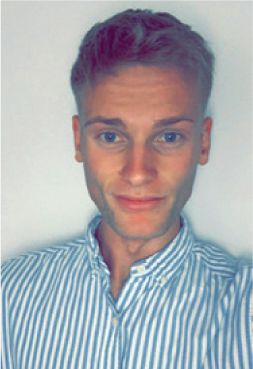
As paramedic practice evolves, a new and exhilarating role is being piloted in the South West of England. I—along with one other colleague—am the first to embark on a training programme as an advanced paramedic practitioner (APP) specialising in neonatal intensive care retrieval medicine in the UK. This novel development has paramedics stepping into the world of retrieval medicine, focusing on delivering critical care to some of our sickest neonates in the region. The Newborn Emergency Stabilisation and Transport Team (NEST) comprises a multidisciplinary retrieval team of nurses, allied health professionals and doctors, stabilising and transporting babies across tertiary and local neonatal units.
The role of the advanced paramedic involves making high-acuity decisions around the delivery of intensive care therapies, undertaking independent and team-based uplifts of care and developing a vast range of extended skills. However, our role is not purely focused on clinical work; we also undertake educational, research, developmental and leadership-based activities in order to fulfil the expectations of the ‘advanced paramedic’. I am proud to be able to share with you a glimpse into a day in the life of an APP in neonatal intensive care retrieval.
Our day begins taking over from the night team. They use a safety briefing and handover checklist to ensure we receive all the pertinent information and discuss any queries or concerns. The discussion includes bed capacity throughout the South West region, pending transfers and any immediate dispatches, equipment and stock levels, transport capabilities and NEST-specific tasks. The morning handover team briefing includes our transport nurse, middle-grade clinician (ANNP, APP or transport doctor) and the top-cover consultant neonatologist. Any urgent dispatches or ‘red calls’ which require a full team for a critical care uplift results in the team being dispatched immediately for transfer.
Every transport the team undertakes is discussed in our ‘rapid review’ meetings; this allows any positive feedback as well as areas of clinical development or potential incidents to be identified early. This also facilitates reflection on practice for individual clinicians and the whole team, highlighting areas of interest and improvement, and creating an open communicative culture. At this point in the morning, the team has the opportunity to discuss open advice calls and create ongoing management plans for the patients referred to us.
After completing the rapid review meeting, we call across the region to get the cot line data for the northern sector of the south west network. These data indicate to us how many beds are available in the region, tertiary unit capacity for babies requiring prolonged intensive care and declarations of infection control or staffing issues. The intensive care bed availability data are essential to obtain an understanding of the region's capacity.
There is a strong emphasis on training and education and when not out on transfer, we conduct team simulations to improve and practise our transport clinical practice. We also take on responsibilities such as auditing data, developing and writing guidelines and starting clinical improvement projects, ensuring our service continues to deliver excellent care.
Our team regularly undertakes a number of transports ranging from in-hours repatriations to out-of-hours capacity and intensive care uplifts. The team composition depends on the nature of the call and the clinical condition or trajectory of the baby. We are able to transport by road ambulance or using the children's air ambulance, minimising transfer times. Our intensive care uplifts include retrieving and stabilising babies suffering from a range of medical or surgical neonatal complications. We provide multiple drug infusion therapies, cooling, nitric oxide delivery, high-frequency oscillatory ventilation and conventional ventilation to some of our sickest babies. I lead the team, creating a management plan for transport, performing enhanced skills such as rapid sequence intubation (RSI) and central access, liaising with referring and receiving unit nurses and consultants. As well as uplifting patients to tertiary hospitals, we repatriate them back to their local neonatal units for ongoing care.
The role of the APP in the retrieval medicine setting is an extremely exciting development for the paramedic profession. The collaboration of in- and out-of-hospital intensive care provision and transport challenges makes this a perfect environment for paramedics to thrive in.

